According to the dictionary, “Respects; Respecting; Respected is a way of treating or thinking about something or someone. If you respect your teacher, you admire her and treat her well.
People respect others who are impressive for any reason, such as being in authority — like a teacher or cop — or being older — like a grandparent. You show respect by being polite and kind. For a lot of people, taking your hat off is a show of respect. When people are insulted or treated badly, they feel they haven’t been treated with respect. You can respect things as well as people. Saying the Pledge of Allegiance shows respect to your country.” [1]
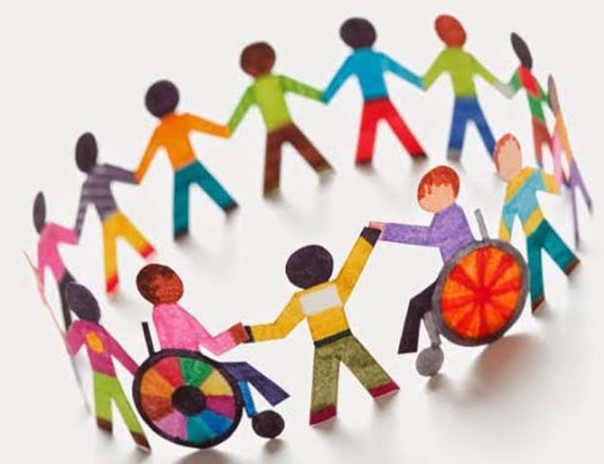
Respect is individually defined for each person through personal experience.
One of the ways we can demonstrate respect is through communication.
“Communicating with someone who has an intellectual disability may be difficult because it is not as easy to know how you are being perceived or understood. A person with an intellectual, or cognitive disability may well have the same kinds of feelings, thoughts, concerns, passions, and struggles that you do. There may be more common ground than you think. If you begin with compassion, a positive attitude, and respect, you’ll be off to a great start.” [5]
Important
- If they don’t want to talk, then don’t pressure them. They may feel uncomfortable or even scared just simply communicating with people so don’t feel as though you must talk to them to seem nice, respect their wishes, they will probably like you better for it.
- Depending on the severity of the disability, the person you’re talking with could get frustrated, impatient, distracted, or even angry. Don’t take these things personally and stay calm. Just like everyone else in the world, they know when you’re tense and it stresses them. Relax and enjoy your conversation. Don’t push them away like everyone else does. How would you feel?
- Give them time to express themselves. Some of them may be stammerers, slow to speak or have trouble connecting words. Be patient and allow them to express themselves at their own pace. They will not only feel appreciated but will also trust you more.
- Everyone has something to teach us. Remember that. Pay attention and you will discover that you learn at least as much from them as they do from you.
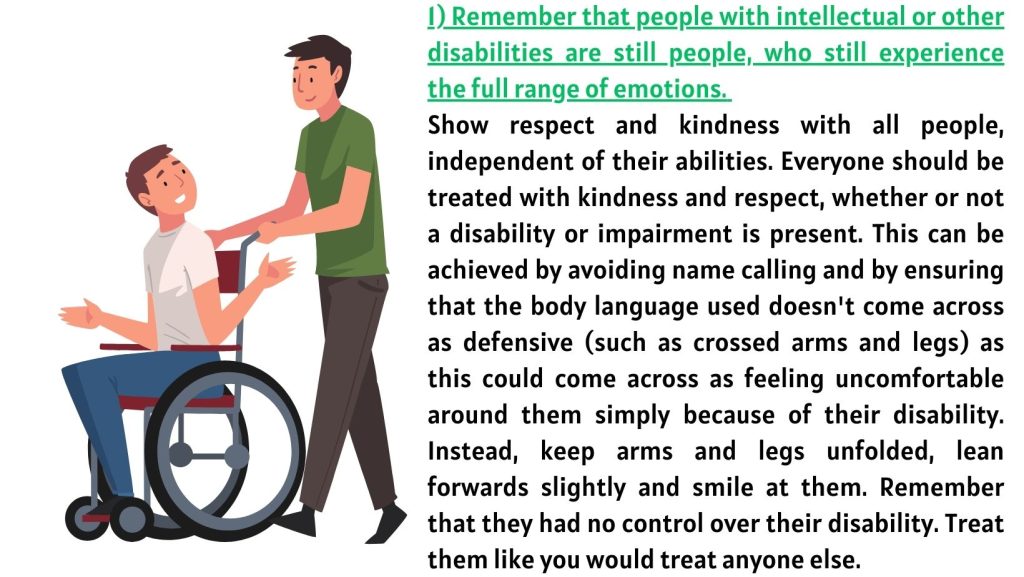
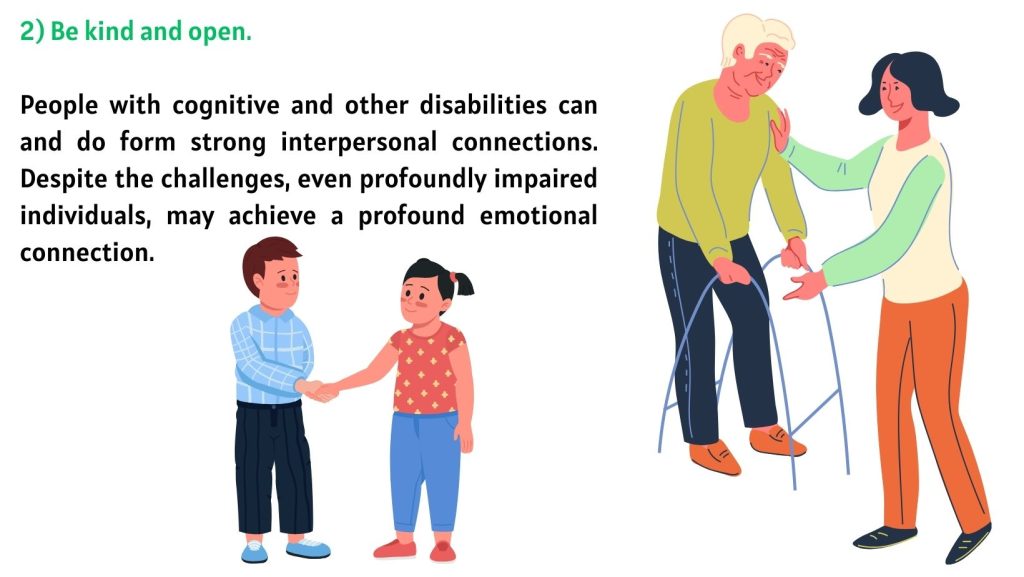
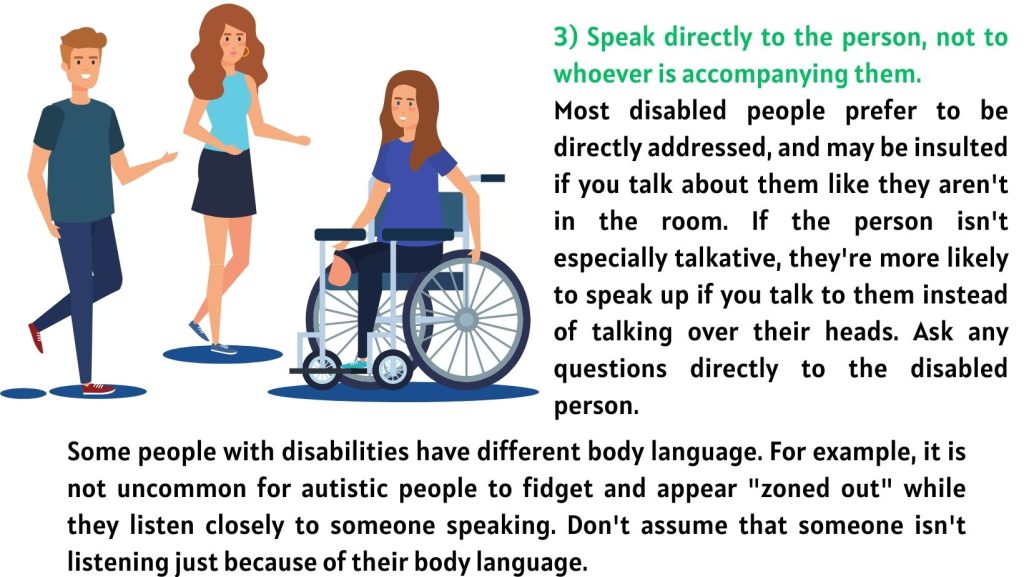
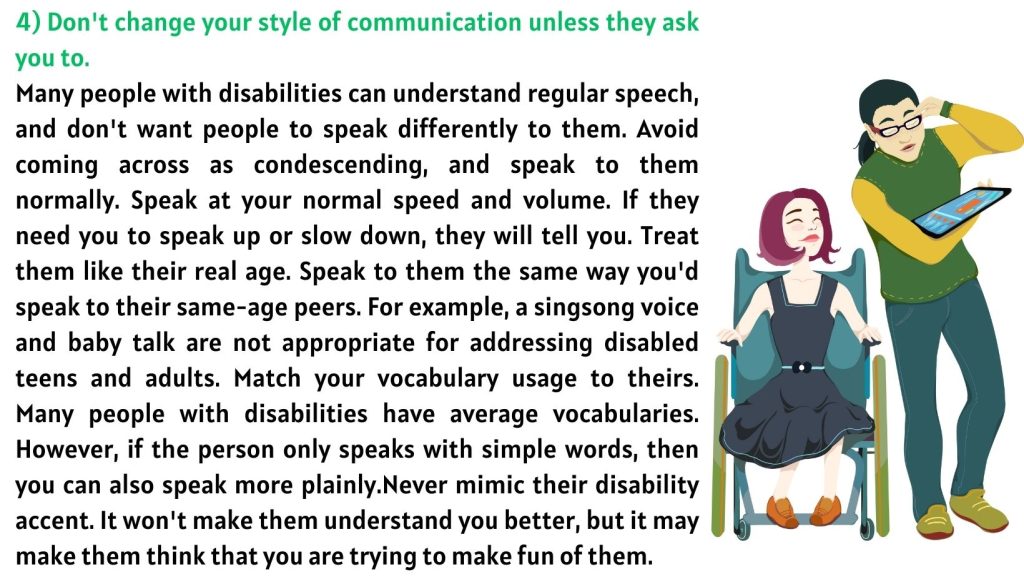
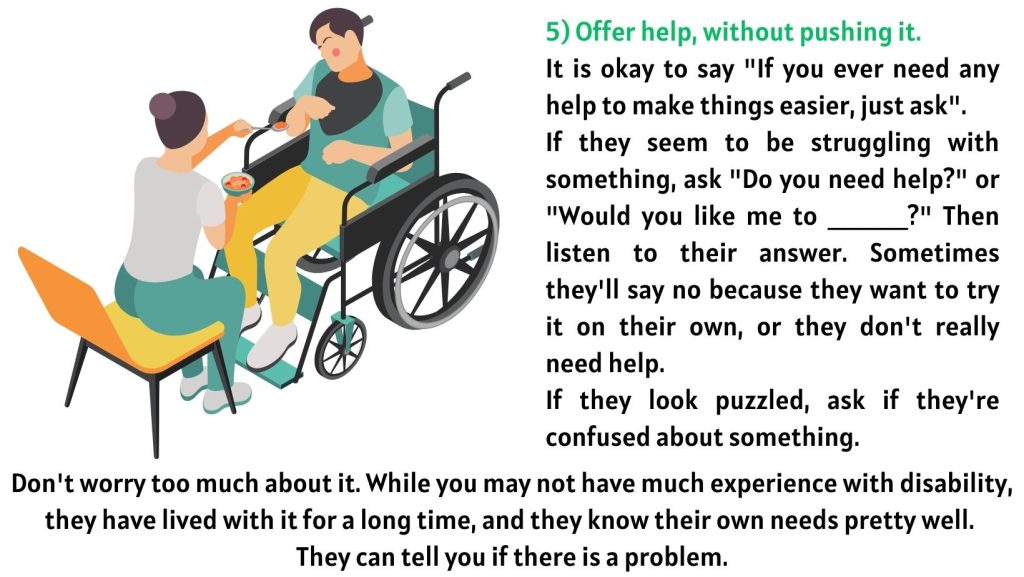
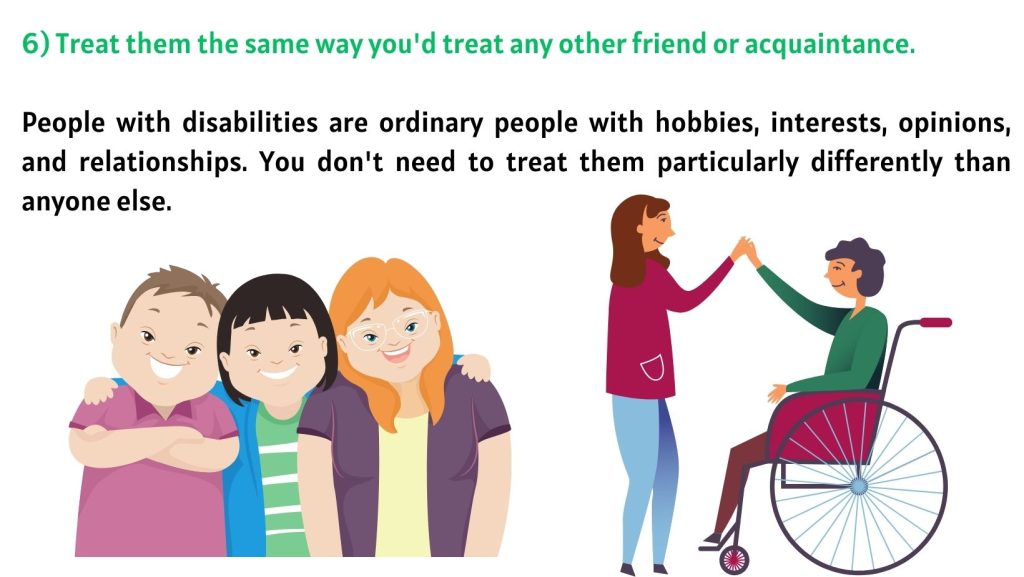
Interesting…
Respect is individually defined for each person through personal experience.
Our personal definitions of respect are influenced by our personality, emotions, preferences, and cultural context. These elements may be difficult to define in the clearest and most objective terms. People with and without disabilities may have difficulty describing and explaining personal criteria for respect. We often learn about these things over time through relationships with people. Respect requires working to understand each person’s individual expectations for respect as we get to know people and build shared experiences. *2
When understanding how other people see and interpret the world around them, dialogue is our most effective tool.
“Being Respected Improves People with Disabilities’ and their quality of life.” Because of the importance of respect, as well as people with disabilities’ long history of being denied respect, the aim of this CQL study *3 was to examine the relationship between respect and disability, particularly in terms of quality of life. To do so, the study analyzed Personal Outcome Measures® data from 1,500 people with disabilities to determine what factors predict people with disabilities being respected, and how being respected impacts people with disabilities’ quality of life.” *4
“Findings revealed a number of disparities in terms of who was likely to be respected. For example, women with disabilities were 1.7 times less likely to be respected than men with disabilities. People with higher support needs were also significantly less likely to be respected than those with lower support needs; people with 24/7 support were 7.7 times less likely to be respected than those with support as needed. People with comprehensive behavioral support needs were also 2.0 times less likely to be respected than those without these support needs.” *4
“The study also revealed the crucial role disability service organizations can play in promoting the respect of people with disabilities. When organizational supports are in place – when organizations know what is important to the person regarding respect, ensure interactions with the person are respectful, and identify and implement supports that enhance the person’s self-image – people with disabilities are 166.7 times more likely to be respected.
Findings revealed, people with disabilities who are respected have higher quality of life in every single domain, ranging from 1.8 times more likely to realize personal goals, to 8.4 times more likely to be treated fairly compared to those not respected
According to the United Nations, “while freedom from want and fear are essential, they are not enough. All human beings have the right to be treated with dignity and respect” (Annan, 2005, p. 34). Yet, in our study, people with disabilities were less likely to have a number of rights present when they were not respected. Human and civil rights should be inalienable and not depend on others’ attitudes towards you. “Respect of and for [people with disabilities] means not only counteracting continuing discrimination, but recognizing their full personhood, ensuring they have opportunities, including the opportunities to make choices and take risks, and recognizing disability as an identity and community” (Friedman, 2018).” *4
The way we interact withy people with disability can demonstrate our respect for them.
Sources
[1] – https://www.vocabulary.com/dictionary/respect
[2]- https://www.c-q-l.org/resources/articles/respect-what-does-it-really-mean/
[5] – https://www.wikihow.com/Interact-with-Someone-with-an-Intellectual-Disability
